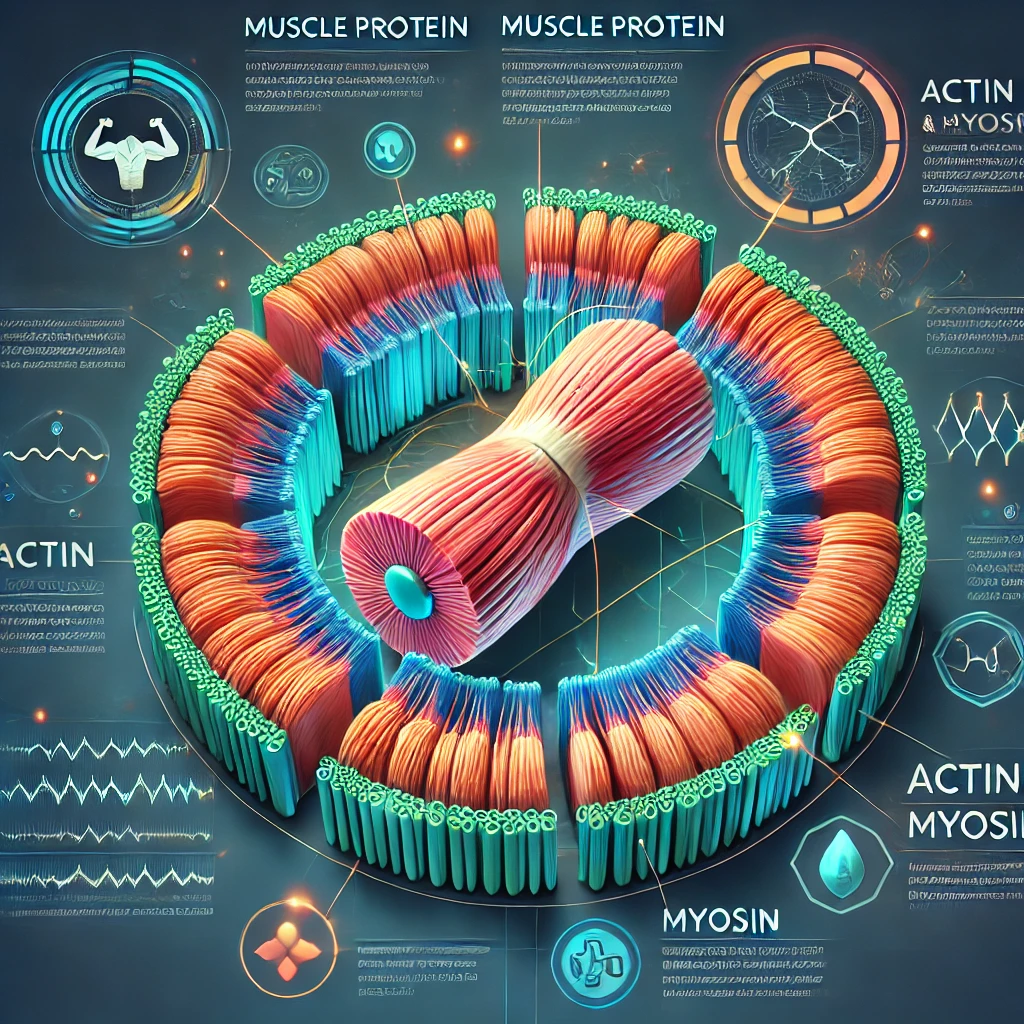Understanding the Muscle Protein Clue in the NYT Crossword

Crossword puzzles are frequently full of beautiful clues that must be solved not just by knowledge but also lateral considering. The muscle protein clue in the NYT Crossword is one recent example of a clue that you’ve seen. Seems pretty easy in terms of biology, right? Well, not necessarily so for non science folks!
In this article, I will be taking a deep dive into the long answer with detailed scientific info on muscle proteins as well as tips for solving similar crossword puzzles.
The Basics of Muscle Proteins
The study muscle proteins in the body and they are those which constitute skeletal muscles. They are vital to muscle contraction, strength and function. The primary muscle proteins known as actin and myosin. These proteins function in muscle fibers to help the muscles contract and aid basic metabolic processes.
Thin filament protein, actin and a thick filament companion, myosin, create the contractile units of muscle cells (sarcomeres). TemperatureThe effect of temperature on the speed and force exerted by muscles is direct, as muscle contraction involves sliding actin and myosin fibers along each other to contract, which shortens a sarcomere. Movements: Sliding Filament Theory Another major component of muscle movement is explained by the sliding filament theory.
In contrast, myosin is a thick filament protein that has heads attached to the actin filaments. These bind to the actin underlying them and, through several chemical steps, pull in on these filaments, causing muscle contraction. Myosin is often known as the “molecular motor” of muscle, since it converts chemical energy in ATP into mechanical work.
Why ‘Actin’ and ‘Myosin’ Are Key in Crosswords
If “Understanding the Muscle Protein Clue in the NYT Crossword” is your clue, then here are what it might be! The muscle proteins are the best known of all, and they readily fit into a small crossword gridand so appear often in puzzles.
In the world of the New York Times Crossword, where clues are infamous for their clever punning and often esoteric references, a layman’s grasp on these muscle proteins can offer solvers an advantage. These are some of the clues that may look like this sort (and how they will be created) at a high-level!
- Actin: 5 letters, common clues = Understanding the Muscle Protein Clue in The NYT Crossword or protein in muscle contraction. If biology is your thing, these two girls think you will love this brand new direct (scientific) pathway to the clue!
- Myosin (6): Another that could be clued as “muscle protein” or “protein in muscles.” Myosin could also be indicated in a way that evoked (without outright mirroring) the role of myosin as the motor protein in muscles, with solvers having to remember what it does rather than simply recognize its name.
Beyond Actin and Myosin: Other Muscle Proteins in Crosswords

Even though actin and myosin is the most commonly chosen, you never know when muscle related proteins can come as Crossword help in a hard quiz. These include:
- Tropomyosin (11 letters) — this protein binds to actin filaments and plays a role in the regulation of muscle contraction Though not common, this is a longer answer that could be seen in bigger crosswords.
- Troponin (8 letters): This is yet another regulatory protein, which governs the movement of actin and myosin; crucial for muscle contractions. Perhaps there should be “troponin” clueing in a harder puzzle when the solver is presumed to know more about biology than this newbie-friendly crossword.
Tips for Solving ‘Muscle Protein’ Clues in Crosswords
- Biology : Get accustomed to the more important derivatives of human muscle proteins. The likely answers here are actin and myosin, but knowledge of both tropomyosin and troponon can make some puzzles a little easier to solve.
- Record the amount of letters: Never forget how many words there are in a crosswords response. That way you can start to rule out whether the clue hints at actin, myosin, or some other non-traditional muscle protein.
- Cross-Check: Confirm an answer by using the letters of other intersecting clues. But even the hardest to choose between “actin” and “myosin,” cross-references are normally able to do it all.
- The function: If the clue tells you what protein does, not just e.g., muscle protein. So, if the concept is “motor,” you may guess myosin contracts muscles.
The Importance of Context in Crossword Clues
Rest of the time, wordplay can involve more lateral thinking as crossword clues depend on context heavily. Something that sounds simple, like “Particle Clue in the NYT Crossword” (obviously the answer is ATOM) might vary greatly with how it’s worded or done against a certain theme meant for exactly this kind of joke. In a themed puzzle, “muscle protein” might be part of some larger scheme or pun that asks solvers to go beyond just the obvious definition.
These clues may involve puns, homophones (words that sound alike but are spelled differently) or perhaps the answer is not what you perceive on first reading. A clue could be, for example: “Protein in muscles,” but the answer might instead be a pun that aims to lead solvers somewhere unrelated and totally unexpected — meaning their work is equal parts knowledge-based as it is imaginative.
Also read: Muscle Activation Technique Exercises
Conclusion: Understanding the Muscle Protein Clue in the NYT Crossword
This post is actually a perfect illustration with scientific information intersecting through wordplay: An Instance of the NYT Crossword Muscle Protein Clue in Understanding_com – New York Times Crossword If you understand some simple biology of muscle proteins like actin and myosin, however, it will give you a leg up when working these out. Getting to know, the various types of clues that are commonly used by concentrating on Crosswords will help improve your solving ability and make this process a lot more fun.